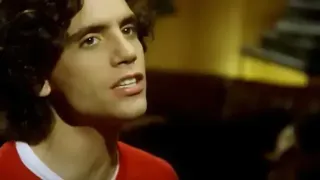March 5, 2024
Review: Boston Lyric Opera Brings Contemporary 'Eurydice' to Vibrant Life
Ed Tapper READ TIME: 3 MIN.
Boston Lyric Opera exhibited remarkable versatility over the past month, swiftly changing gears from 18th century classicism to the contemporary idiom. "The Anonymous Lover" by Chevalier de Saint-Georges proved a charming period trifle, while the company was simultaneously preparing the young composer, Matthew Aucoin's "Eurydice," a modern adaptation of the ancient Greek myth.
The tragic tale of Orpheus, in which the demi-god of music mourns the sudden death of his bride, Eurydice, and attempts to rescue her from the underworld, was used as the basis for the very first, full-fledged opera. Subsequently, dozens of composers have drawn upon the classic myth as the inspiration for operas, stage-works and songs. So, the question was whether or not Aucoin could succeed where Orpheus himself failed, in bringing Eurydice back again to vibrant life.
The work was based on a play by Sarah Ruhl, who also wrote the libretto for the opera. Following the basic storyline, Ruhl made several modifications, injecting a number of comic elements and plot twists. Though the story was updated, she managed to give it a timeless feel and is to be commended for maintaining the dignity of the original myth. Thankfully, we were spared having Orpheus trying to reach Eurydice on a cellular device. Yet the libretto was often obtuse, with ponderous and dull passages that hampered the action. Fortunately, these moments were alleviated by Aucoin's colorful score.
Although the music was influenced by that of established, modern masters, Aucoin often managed to create an individual sound. His music is tonal, with a tolerable level of dissonance. The orchestration is often brilliant, as the composer creates interesting effects in all the orchestral sections, most notably the percussion. The vocal lines are complex, rhythmically and melodically, making great demands of the singers. BLO's talented cast was up to the challenge.
"Eurydice" was sung in English, with projected super-titles, and conducted by the composer. The production was highly imaginative, with sets, costumes and stage direction (all three by Douglas Fitch) that perfectly suited the spirit of the work. Particularly notable were the evocative lighting designs of Jorge Arroyo. The supporting roles were extremely well sung. Baritone Mark S. Doss made a sympathetic father, and tenor David Portillo pierced the stratosphere as Hades, handling the "hellish" coloratura to perfection.
Baritone Elliot Madore and soprano Sydney Mancasola were ideal choices for the leading roles of Orpheus and Eurydice. Madore has an attractive, secure baritone that he used to nice effect and was a striking stage presence. Mancasola was nothing short of outstanding in the title role. She has a firmly focused, soprano instrument that soared over the orchestra. Not only did she negotiate the technical demands of the complex music to perfection, but she sang the role with nuance and temperament.
Boston audiences will have ample opportunity to gauge the success of the Aucoin / Ruhl "Eurydice." Performances run at the Huntington Theatre through March 10.
For more information, visit the Boston Lyric Opera website.
Watch a video preview of the BLO's "Eurydice" below.






